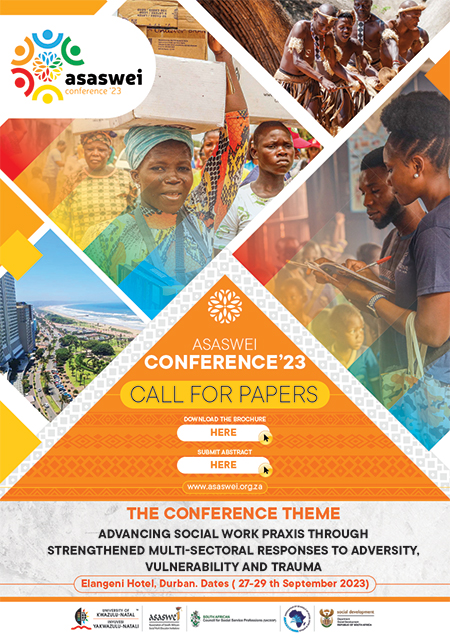The View page displays a submission's general information and data. Watch video
Submission information
Submission Number: 88
Submission ID: 110
Submission UUID: ce50e03a-7e84-4c3e-a468-a728512bdebb
Submission URI: /2023/abstracts
Created: Thu, 06/29/2023 - 15:43
Completed: Thu, 06/29/2023 - 15:49
Changed: Tue, 08/01/2023 - 20:20
Remote IP address: 196.21.218.222
Submitted by: Anonymous
Language: English
Is draft: No
Current page: Complete
Webform: Abstract
Presenters
Mr.
RAMOSHABA
DILLO JUSTIN
University of Limpopo
Justin Ramoshaba is a social work lecturer at the University of Limpopo. Justin is a young upcoming researcher and holds a master’s degree in social work. The presenter is currently a registered PHD student who is at the writeup stage. The presenter has published over 11 research articles in DHET accredited journals
Yes
Prof.
RAPHOLO
SELELO FRANK RAPHOLO
University of Limpopo
The Presenter is an associate Professor and HoD at the University of Limpopo. The Presenter has published over 18 research articles in DHET accredited Journals.
No
Abstract
• THE DISORIENTATION OF FAMILIES BY THE COVID-19 PANDEMIC IN POLOKWANE, SOUTH AFRICA
THEME 2: Building sustainable, resilient, and self-reliant communities through indigenous modalities, inter-sectoral collaborations, and partnerships
SUB 2.1 Supporting families in mitigating vulnerabilities
Oral Presentation
Several studies show that during natural disasters, individuals and families face challenges such as exacerbation of existing family problems or new difficulties accompanied by stress related to job loss, injury or illness, and parenting concerns. The negative impact of the COVID-19 pandemic on people’s lives was also reported to be instigated by the safety measures such as isolation strategies and lockdown which led to more challenges such as change in activities and livelihoods. It is from this background that the researchers developed a hunch to explore the disorientation of selected families by the COVID-19 pandemic in Polokwane which is located in the Limpopo Province of South Africa. The researchers adopted a qualitative approach wherein a case study design was used. Data was collected through semi structure interviews wherein convenient and Snowball sampling techniques were used to select the respondents. Thematic content analysis was used to analyse the data. The findings of the study show that loss of family bonds, Job loss and domestic violence are what disorientated the selected families in Polokwane. Conclusions and recommendations are also provided in this study.
Reviewer ONE Feedback
Dr
Gladys
Bhuda
Yes
Empirical Research
Accepted
Reviewer TWO Feedback
Prof
Veonna
Goliath
Yes
Empirical Research
Accepted

